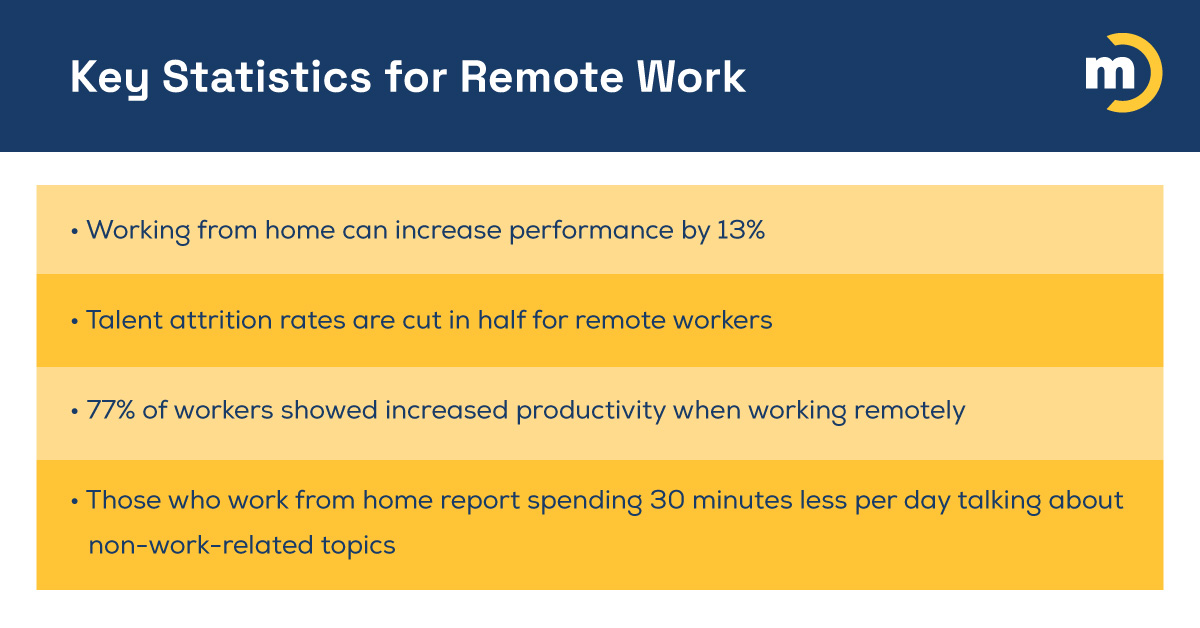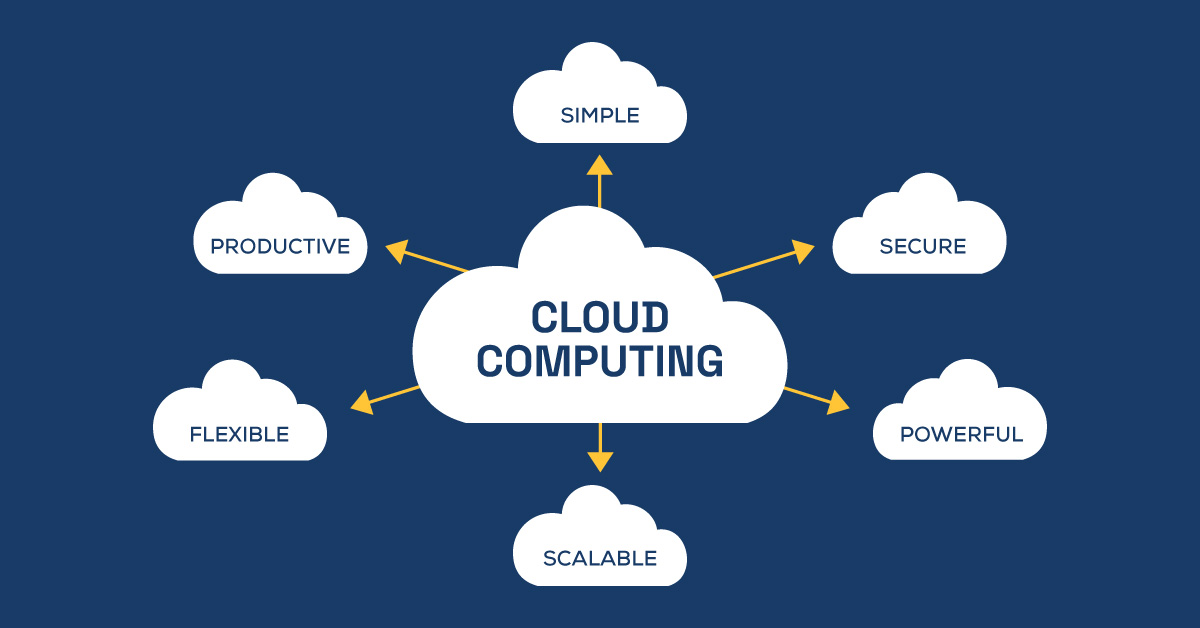While I’m not asking anyone to thank COVID, business technology did take a huge leap forward because of it. Organizations that had sufficient IT staff to pivot got a crash course in cloud computing and the many advantages it had to offer. However, If you haven’t yet taken the leap, you might be wondering if you’re missing out on something big.
The easy answer is yes, but no two organizations are the same. In this blog, I’ll outline the top benefits of cloud computing and a few scenarios that are dramatically improved by making the switch.
Identifying The Advantages Of Cloud Computing
While I’m not asking anyone to thank COVID, business technology did take a huge leap forward because of it. Organizations that had sufficient IT staff to pivot got a crash course in cloud computing and the many advantages it had to offer. However, If you haven’t yet taken the leap, you might be wondering if you’re missing out on something big.
The easy answer is yes, but no two organizations are the same. In this blog, I’ll outline the top benefits of cloud computing and a few scenarios that are dramatically improved by making the switch.
What Is Cloud Computing?

Cloud computing is the practice of using a network of remote servers that you access through the internet to store, manage, and process data. So here’s a bit of good news: You might be using the cloud more than you think you are!
The Benefits of Cloud Computing
Collaboration in the cloud allows employees to work together on documents and other data types, which are stored off-site and outside of the company firewall. Cloud collaboration simplifies sharing, editing, and working together on projects.
But how do you know if the benefits of cloud computing will apply to your business? The good news is that it can be a benefit for companies of all sizes. It depends much more on your computing needs, the applications you use, and the habits of your workforce than it does on the size of your organization.
While there are many reasons businesses should migrate to the cloud — from cost savings to productivity and everything in between — it's sometimes tough to pull them out of thin air and name them. That's why I've outlined three common scenarios demonstrating how cloud computing can give today's businesses an edge.
Use Case Examples for Cloud Computing
Basically, if your business can relate to one of these scenarios, it's a good idea to consider cloud computing as a solution.
1. Your Business Has Multiple Locations or Employees Work Remotely
If your business has multiple locations, you've probably dealt with frustrations related to teams trying to connect and collaborate on the same project from a distance. The same issues can occur if you have employees who work remotely (or would like to). Cloud collaboration tools allow employees to access the same project documents — in real-time — even though they may be miles apart.
Access to real-time project documents also saves time and money. Here are a few reasons why:
- Cloud tools can eliminate the effort of emailing documents back and forth
- It reduces the chance that an employee is using the wrong file
- It's easier for your employees to keep track of what's going on
- Employees can often work more quickly in the cloud
Not every business is a huge fan of remote or hybrid work, but now that employees have had a chance to make their case, the stats are in, and productivity is way up.
 2. You Have Frequent IT Trouble
2. You Have Frequent IT Trouble
No matter how well any computer system or IT infrastructure is maintained, you will eventually face problems. IT trouble interrupts productivity, taking your employees away from their primary jobs. And resolving these issues — especially if you are a small business — can take up even more valuable hours that can easily turn into days.
With cloud-based collaboration tools, you’ll have less on-site equipment to maintain internally. Instead, a trusted partner can focus on maintenance and issue resolution. You’ll also be able to save money and space by operating with less IT infrastructure.
As a side bonus, cloud-based collaboration tools tend to be very user-friendly, so don’t be surprised if your onboarding process becomes shorter and less frustrating for new talent.
3. Your Company Is Growing, but You Don’t Have a Way To Scale Your Infrastructure
If you know that your company is going to hire more employees, but you're not sure when and how large you’ll grow, the cloud is a great solution.
With conventional internal infrastructure, you need to purchase equipment as your company grows, and potentially hire more people to maintain it. But with cloud collaboration, no matter how much or how quickly you grow, you'll be able to access the cloud solution that best meets your needs — all it takes is a simple call to your cloud provider.
The cloud’s scalability helps you more easily manage peaks and valleys in your demand, ensuring you only pay for what you need.
5 Industries That Benefit From the Cloud

The use cases I outlined earlier could apply to many different organizations, but there are a few that I’d like to speak to more specifically. If your business is in any of these sectors below and you haven’t migrated to the cloud, now’s the time.
1. Healthcare
Data privacy should be a concern for every organization, but protecting data in the cloud is paramount for healthcare organizations. Excellent cloud providers understand this very well, which is why they typically have invested in enterprise-grade cybersecurity. As long as you’re also following best practices and using your cloud solutions properly, your data in the cloud is likely more protected than your data outside of it. Plus, using cloud computing tools can help you store and retrieve patient records, empower more collaboration among medical professionals, and facilitate better communication with patients.
2. Manufacturing/Logistics
You need to manage a supply chain? Cloud computing tools can help you gain visibility into every stage of product transportation so you can avoid unpleasant surprises and meet your targets.
3. Nonprofits/Government Organizations
Cloud solutions can allow organizations to accomplish a lot more with less infrastructure, which is especially helpful for nonprofits that don’t have access to a large IT staff. Cloud solutions are also updated frequently, so organizations can always access the latest and greatest tools without having to make a big purchase.
4. Automotive
Apply this to many retail scenarios as well: With cloud computing tools, you can locate inventory in seconds. Plus, you can get all kinds of information at your fingertips to overcome objectives, understand your customers and their purchase history, and close deals faster.
But there are also new information security regulations to consider:
- The Gramm-Leach-Bliley Act Privacy Rule requires that auto dealers protect their customers’ data
- The Gramm-Leach-Bliley Act Safeguards Rule requires that dealers need to have a written information security plan and other cybersecurity basics in place
As automotive dealerships that offer financing are treated more and more like financial institutions, they need to offer the same protections to consumers. When properly configured and paired with other cybersecurity best practices, cloud computing tools make world-class cybersecurity more accessible, even for smaller family-owned dealerships.
5. Legal
Need to store a large volume of files for a long, long time and be able to search for and access any of them at a moment’s notice? That’s an ideal use case for cloud computing tools. It’s a great way to keep billable hours up while you minimize administrative tasks and infrastructure costs. And if you’re hoping to grow your firm, cloud tools can grow along with you.
Simplifying and Securing Your Migration
Once you get set up in the cloud, most things get easier. But getting there can be difficult. Migrating to the cloud isn’t something most IT teams do every day, and it’s helpful to have a well-defined strategy to minimize disruptions and protect your data in transit.
You’ve probably guessed it by now…we have people who specialize in IT projects just like this! Our cloud specialists understand exactly what to watch out for and how to make the journey as stress-free and seamless as possible. We can also recommend the best cloud computing tools and help you get more ROI out of them.
Hit us up when you’re ready, and feel free to learn more by clicking the button below!


